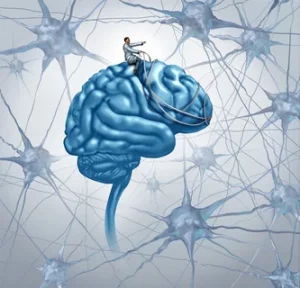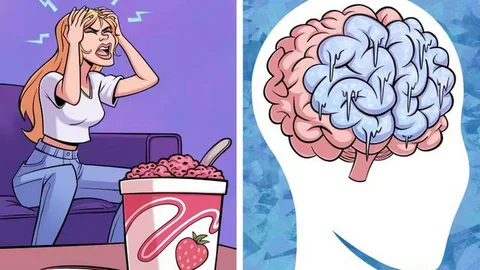Understanding the Phenomenon of Brain Freeze Brain freeze, scientifically termed sphenopalatine ganglioneuralgia, is a common yet intriguing phenomenon that many of us have experienced. It typically occurs when we consume something cold too quickly, causing a sudden and intense headache. Despite its temporary nature, the discomfort it brings can be quite distressing. Let’s delve into
Understanding the Phenomenon of Brain Freeze
Brain freeze, scientifically termed sphenopalatine ganglioneuralgia, is a common yet intriguing phenomenon that many of us have experienced. It typically occurs when we consume something cold too quickly, causing a sudden and intense headache. Despite its temporary nature, the discomfort it brings can be quite distressing. Let’s delve into the intricacies of this icy headache and uncover the mysteries behind it.
The Physiology of Brain Freeze
Constriction and Dilation: A Delicate Balance
When we consume cold substances, such as ice cream or chilled beverages, the sudden temperature change affects the blood vessels in the roof of our mouth (palate). The body responds by constricting these blood vessels to prevent heat loss. However, as we continue to consume the cold item, the vessels quickly dilate in an attempt to rewarm the area. It is this rapid constriction and dilation of blood vessels that leads to the sensation of pain associated with brain freeze.
Triggering the Nerves
The intense cold can also stimulate a cluster of nerves located behind the palate known as the sphenopalatine ganglion. This cluster serves as a relay station for sensory information from the face, head, and neck to the brain. When exposed to extreme cold, the nerves in this ganglion are activated, sending signals to the brain that are interpreted as pain or discomfort. Explore More About Health

Image by: yendex.com
Factors Contributing to Brain Freeze
Rate of Consumption
One of the primary factors contributing to brain freeze is the speed at which we consume cold substances. When we indulge in icy treats too quickly, the temperature sensors in our mouth are overwhelmed, triggering a rapid physiological response. Slowing down the pace of consumption can help mitigate the risk of experiencing brain freeze.
Individual Sensitivity
Interestingly, not everyone is equally susceptible to brain freeze. Some individuals may be more prone to experiencing this phenomenon due to variations in their sensitivity to cold temperatures or differences in the structure of their oral cavity. Factors such as genetics and overall health may also play a role in determining an individual’s susceptibility to brain freeze.
Coping Strategies and Remedies
Pressing the Tongue Against the Roof of the Mouth
One common method for alleviating brain freeze is to press the tongue against the roof of the mouth. This technique helps to warm the palate and restore normal blood flow, easing the discomfort associated with brain freeze. Taking slow, deep breaths and sipping warm water can also help alleviate symptoms.
Moderation and Awareness
Practicing moderation and being mindful of consumption speed can significantly reduce the likelihood of experiencing brain freeze. Instead of gulping down icy beverages or devouring frozen treats in haste, take your time to savor each bite or sip. By pacing yourself and allowing your body to adjust to the cold temperatures gradually, you can minimize the risk of triggering brain freeze.

Image by: www.cult.fit
Seeking Shelter from the Cold
In colder environments, such as during winter sports or outdoor activities, it’s essential to take precautions to prevent brain freeze. Wearing appropriate clothing to stay warm, covering the head and face with hats or scarves, and avoiding prolonged exposure to cold temperatures can help reduce the likelihood of experiencing brain freeze.
Conclusion
Brain freeze, though temporary and harmless, can be a discomforting experience for many. By understanding the physiological mechanisms underlying this phenomenon and implementing simple coping strategies, such as moderation and awareness, we can effectively manage and even prevent brain freeze. So, the next time you indulge in a frosty treat, remember to savor it slowly and mindfully to avoid the icy headache that comes with consuming cold substances too quickly.
















